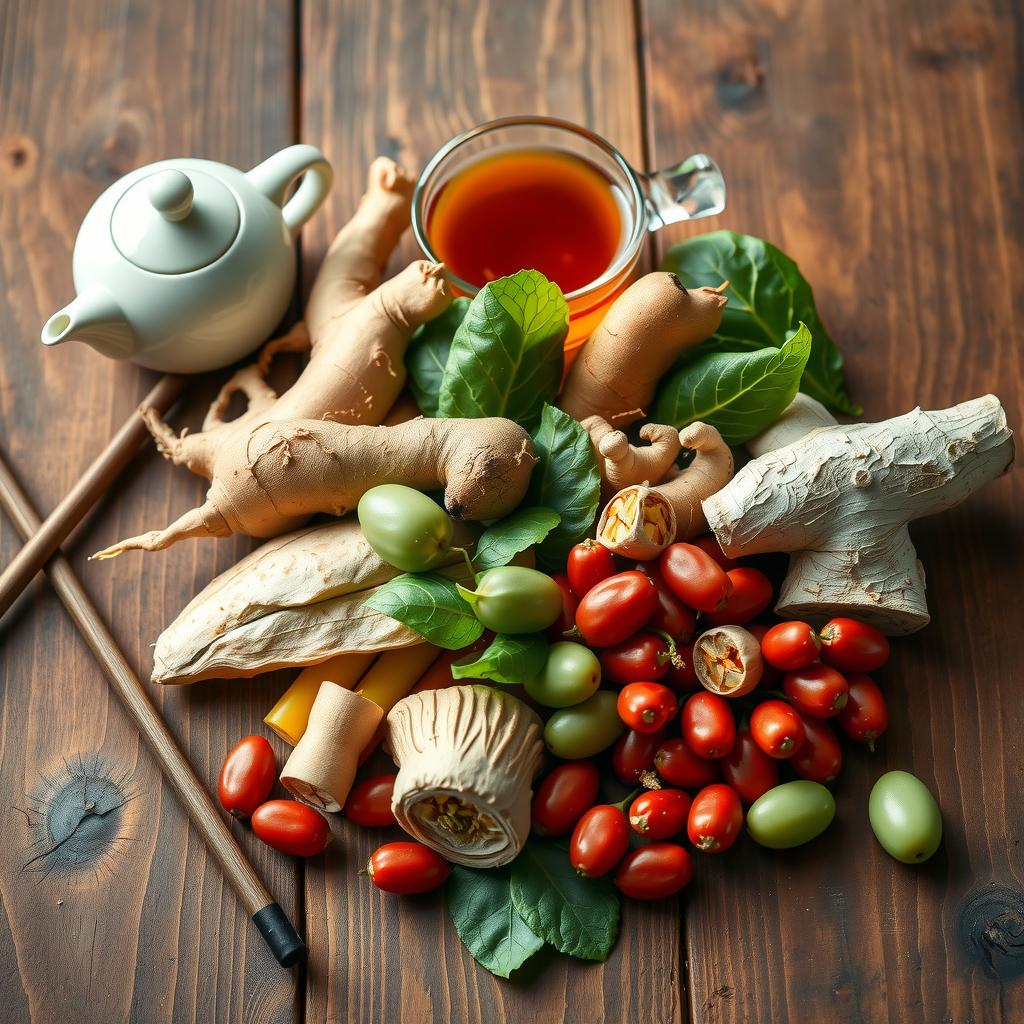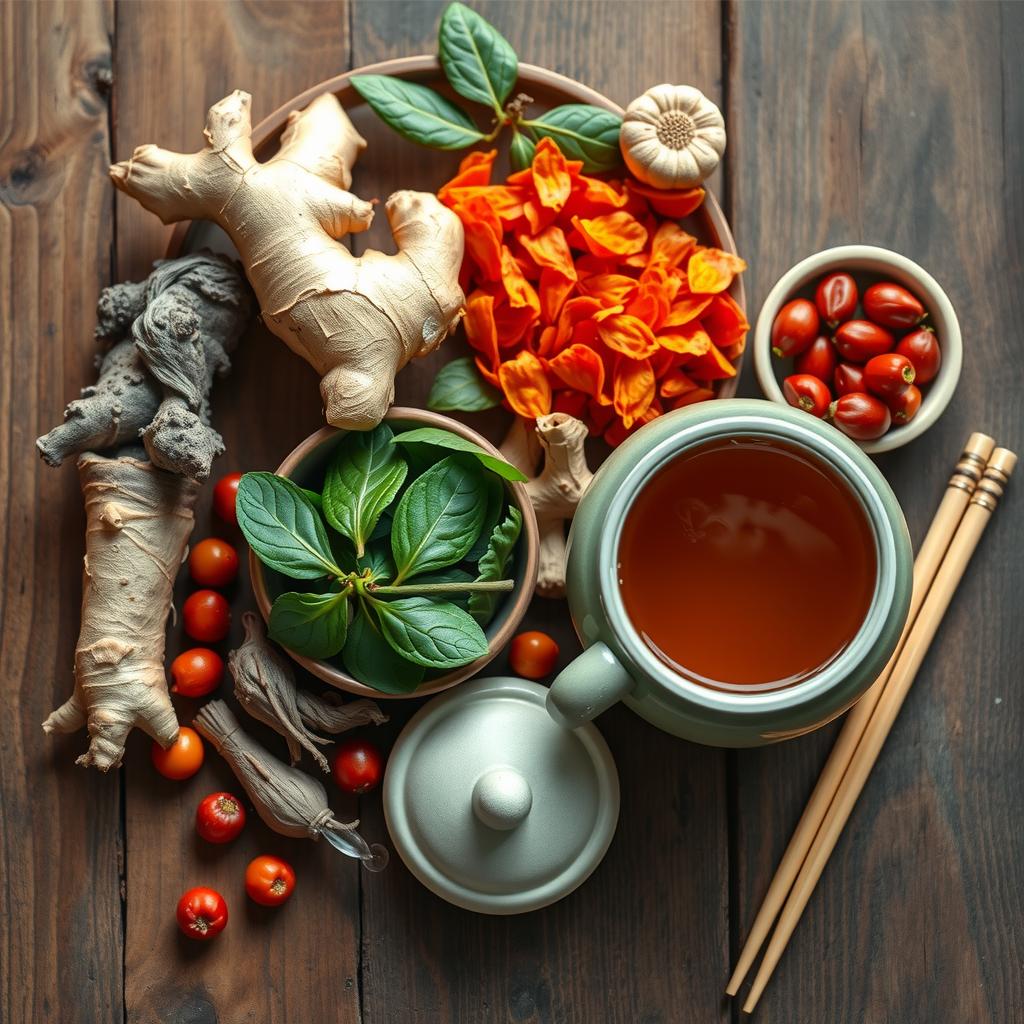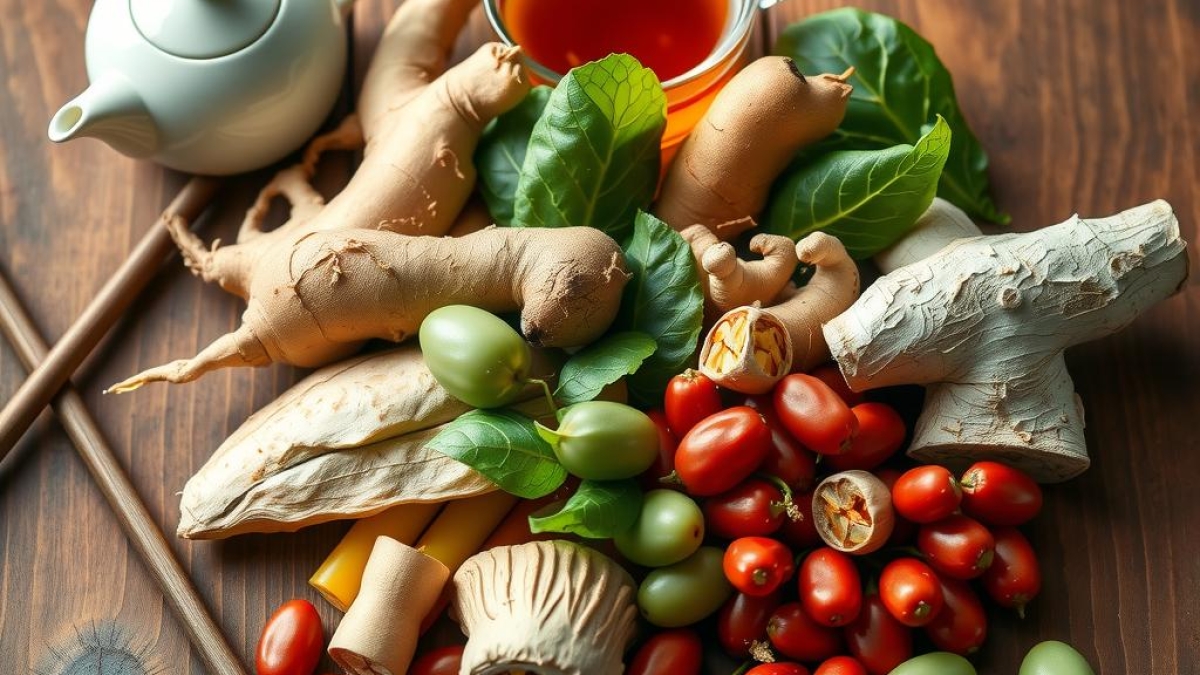In an age where digestive issues have become commonplace, many individuals find themselves seeking effective solutions beyond the conventional medicine cabinet. The discomforts associated with poor gut health—from bloating and gas to more serious conditions—can significantly impact one’s overall well-being. This growing prevalence of digestion problems has led countless people to explore alternative methods for achieving optimal digestive health. Among these alternatives, traditional Chinese herbs stand out as time-tested remedies that not only address immediate concerns but also promote long-term wellness support.
Traditional Chinese medicine (TCM) emphasizes a holistic approach, viewing the body as an interconnected system where each organ influences others. Within this framework, specific herbs are revered for their ability to enhance digestion and alleviate common ailments related to it. These ancient practices offer natural solutions that align with modern desires for gentle yet effective treatments. By understanding how these herbal remedies function within the body, individuals can make informed choices about incorporating them into their daily routines.
As readers delve into this exploration of traditional herbs designed specifically for digestive health, they will discover a wealth of information that highlights both historical significance and contemporary relevance. From calming inflammation in the gut to balancing digestive enzymes, these powerful botanicals present diverse benefits that cater to various digestion issues faced by today’s population. Furthermore, recognizing the importance of nurturing one’s microbiome through targeted herb usage can pave the way toward improved overall vitality.
This blog post aims not only to inform but also inspire those grappling with digestive discomforts by spotlighting traditional Chinese herbs known for their remarkable potential in enhancing gut function. As we navigate through these herbal allies, readers will uncover practical insights on integrating them seamlessly into their lifestyles—a journey towards embracing ancient wisdom in pursuit of modern-day wellness goals awaits!

Key Points:
- The Role of Traditional Herbs in Digestive Health: Exploring how ancient practices utilize specific herbs to promote overall gut wellness and alleviate common digestion issues.
- Holistic Benefits of Herbal Remedies: Understanding the broader implications of herbal solutions, which not only target immediate symptoms but also foster long-term health and vitality.
- Integrating Natural Solutions into Daily Routines: Practical tips on incorporating effective traditional herbs into everyday life for sustained digestive support.
In recent years, there has been a rising interest among individuals seeking natural ways to improve their digestive health. This curiosity often leads them to explore traditional herbs, known for their centuries-long use in various cultures, particularly within Chinese medicine. These herbal remedies serve as powerful allies in tackling prevalent digestion issues while simultaneously enhancing overall gut health. By tapping into this rich heritage, modern seekers can discover effective methods that resonate with their bodies’ needs.
One significant aspect of these traditional herbs is their ability to address not just the symptoms but also the underlying factors contributing to poor digestion. Many individuals experience discomfort due to stress or unhealthy dietary choices; however, certain herbal solutions are celebrated for promoting a balanced digestive system. For instance, some well-known botanicals work synergistically to soothe gastrointestinal distress while creating an optimal environment for healing and nutrient absorption—crucial elements for maintaining good health.
Moreover, incorporating these age-old ingredients into one’s daily regimen offers profound benefits beyond mere symptom relief. It is increasingly recognized that consistent use of selected herbal remedies can lead to remarkable transformations in well-being. Whether enjoyed as soothing teas or potent tinctures crafted from carefully chosen plants renowned for enhancing digestion, individuals may find themselves empowered on their journey toward better health outcomes.
As awareness grows regarding the potential benefits of embracing nature’s offerings, more people are likely inclined towards utilizing these natural solutions as essential components of their self-care strategies. By understanding how specific traditional herbs contribute positively toward achieving harmony within the body and fostering robust wellness support, readers become equipped with knowledge that encourages proactive engagement with their health journey—a testament indeed to the enduring legacy found within nature’s pharmacy.

The Role of Digestion in Nutrient Absorption
Understanding the Link Between Digestive Health and Nutrient Utilization
Digestive health is fundamentally intertwined with overall well-being, primarily through its influence on nutrient absorption. When the digestive system operates optimally, it effectively breaks down food into essential nutrients that the body requires for energy, growth, and cellular repair. However, when individuals experience digestion issues, this process can be disrupted, leading to malabsorption. This means that even if one consumes a balanced diet rich in vitamins and minerals—often promoted by traditional herbs known for their digestive benefits—the body may not fully utilize these nutrients. For example, certain herbal remedies like ginger or peppermint have been traditionally recognized for their ability to soothe digestive discomforts and enhance gut motility. By supporting healthy digestion through such natural solutions, individuals can promote better nutrient uptake from their meals. Furthermore, studies have shown that an imbalance in gut health can contribute to deficiencies that manifest as fatigue or weakened immunity over time. Therefore, prioritizing digestive wellness is crucial not only for absorbing vital nutrients but also for maintaining a robust overall health profile.
Mental Clarity: The Gut-Brain Connection
Exploring How Digestive Well-Being Influences Cognitive Function
The relationship between digestion and mental clarity has garnered increasing attention within both scientific research and holistic wellness practices. Emerging evidence suggests that the gut-brain axis plays a significant role in cognitive function; thus improving one’s gastrointestinal health could have profound implications on mental acuity and emotional stability. A well-functioning gut microbiome contributes to the production of neurotransmitters—chemicals essential for mood regulation—and affects brain functions such as memory retention and focus. Incorporating herbal remedies like chamomile or fennel into one’s routine may support both digestion and relaxation responses within the nervous system, promoting enhanced cognitive performance while alleviating stress-related eating patterns often linked with poor gut health outcomes. Moreover, addressing any underlying digestion issues—such as bloating or irregular bowel movements—is critical because physical discomfort can significantly detract from mental concentration abilities throughout daily activities. As awareness grows regarding this connection between gut integrity and cognitive capabilities, individuals are encouraged to explore natural solutions aimed at fostering both digestive balance and improved psychological resilience.
Overall Health Enhancement Through Digestive Care
Why Maintaining Gut Health Is Essential For Comprehensive Wellness Support
Achieving optimal overall health necessitates an integrated approach where digestive health serves as a cornerstone of comprehensive wellness support strategies. An efficiently functioning gastrointestinal tract does far more than simply manage food intake; it acts as a foundational element influencing immune response systems responsible for warding off illnesses effectively while processing toxins from various sources encountered daily—from environmental pollutants to dietary indiscretions inherent in modern lifestyles populated by fast foods laden with preservatives detrimental to gut flora diversity.
For instance,
communities worldwide rely on traditional herbs renowned for promoting good digestion naturally alongside contemporary nutritional science advocating fiber-rich diets abundant with whole grains alongside wholesome fruits/vegetables which contribute significantly towards enhancing one’s microbial landscape within intestines thereby ensuring effective metabolism occurring without unnecessary strain exerted upon liver/kidneys resulting ultimately healthier living conditions characterized reduced inflammation levels prevalent among those suffering chronic ailments often stemming imbalances originating traced back inadequate attention given toward maintaining one’s own unique biological rhythms governing personal wellbeing.
Incorporating regular check-ins focused explicitly around assessing individual approaches taken regarding dietary habits means recognizing potential pitfalls surrounding long-term neglect concerning how vital ensuring consistent upkeep relating all facets encompassing our physical states translates directly correlatively impacting broader life quality experiences across diverse scenarios encountered day-to-day interactions engaged willingly harnessing available knowledge resources committed educating oneself navigating pathways leading toward achieving greater success nurturing thriving lives filled vibrant energies flowing harmoniously amidst challenges faced head-on together overcoming obstacles collectively united purpose-driven endeavors shared mutual aspirations uplifting spirits unfailingly journey undertaken transforming lives positively every step forward taken along way!
Traditional Chinese Herbs and Digestive Health
Exploring Time-Honored Remedies for Gut Wellness
Traditional Chinese medicine (TCM) offers a rich tapestry of herbal remedies aimed at enhancing digestive health and promoting overall gut wellness. Among these time-honored herbs, several stand out for their ability to address various digestion issues, including bloating, indigestion, and irregular bowel movements. One of the most revered is Ginger Root, known for its warming properties that stimulate digestion by increasing gastric motility. This herb not only alleviates nausea but also supports the secretion of digestive enzymes, making it an essential component in TCM formulations targeting gastrointestinal discomfort. Furthermore, Licorice Root serves as another powerful ally; it harmonizes other ingredients in herbal blends while providing soothing effects on the stomach lining and helping to reduce inflammation.
Another notable herb is Hawthorn Berry, which has been utilized for centuries to assist with food stagnation—a common symptom associated with poor digestion. Hawthorn enhances blood circulation to the digestive organs, thereby improving nutrient absorption and alleviating feelings of fullness after meals. Additionally, its rich antioxidant profile contributes positively to gut health by combating oxidative stress within the digestive tract. It’s worth mentioning that many practitioners recommend adopting a holistic approach by combining these traditional herbs with lifestyle modifications such as dietary adjustments and mindful eating practices.
The Role of Herbal Remedies in Digestive Function
Integrating Nature’s Solutions into Daily Life
The integration of traditional herbs into daily routines can significantly bolster individuals’ efforts toward achieving optimal digestive function. For instance, incorporating Peppermint Leaf into tea or culinary dishes can provide immediate relief from gas and cramping due to its natural antispasmodic qualities. Moreover, this fragrant herb promotes bile flow—essential for digesting fats—thus facilitating smoother digestion overall. Another frequently employed remedy is Dandelion Root, which plays a crucial role in stimulating appetite while supporting liver function; both are vital components contributing to efficient digestion.
In addition to addressing specific symptoms like bloating or constipation through targeted use of herbal remedies like those mentioned above—individuals may experience enhanced resilience against chronic conditions affecting gut health when engaging regularly with these natural solutions over time. It’s important that individuals consult knowledgeable practitioners who specialize in TCM before embarking on their journey with these potent plants; personalized guidance ensures they harness each herb’s full potential effectively tailored toward individual needs.
Embracing Tradition: A Pathway Towards Better Digestion
Connecting Past Wisdom with Modern Wellness Practices
Understanding how traditional Chinese herbs work synergistically can empower people towards improved well-being related directly back-to-the-gut ecosystem—the core element influencing every aspect from energy levels down even mood regulation! As society increasingly embraces integrative approaches encompassing ancient wisdom alongside contemporary medical advancements—it becomes clear where bridging traditions creates fertile ground yielding profound benefits across diverse demographics seeking sustainable ways enhance life quality through proactive methods fostering harmony within rather than resorting exclusively pharmacological interventions alone!
Recognizing that maintaining balance requires consistent effort allows one appreciate subtleties inherent nature’s gifts represented via carefully curated selections crafted upon foundations established millennia ago yet still resonant today underscores power lies not merely knowledge amassed but choices made reflect commitment nourishing ourselves holistically mindfully cultivating environments thrive—from our plates kitchens living spaces too!
Embracing Herbal Teas for Daily Wellness
Discover the Benefits of Infusing Herbal Teas into Your Routine
Incorporating traditional herbs into daily life can be a transformative experience, especially when it comes to enhancing overall wellness. One of the simplest and most effective ways to introduce herbal solutions is through herbal teas. These brews not only provide hydration but also offer an array of health benefits that can support various aspects of well-being. For instance, chamomile tea is renowned for its calming properties, making it an excellent choice for easing stress and promoting better sleep. On the other hand, peppermint tea can aid in digestion and alleviate discomfort associated with digestion issues. To integrate these herbal remedies seamlessly into everyday routines, individuals might consider setting aside specific times each day dedicated solely to enjoying a cup of herbal tea—perhaps starting the morning with invigorating ginger or winding down in the evening with soothing hibiscus.
Crafting homemade blends tailored to personal taste preferences enhances this experience further; combining different herbs allows one to create unique flavors while maximizing health benefits. The act itself becomes a ritual—a quiet moment amidst life’s chaos that fosters mindfulness and relaxation. As people cultivate their relationship with these natural solutions, they may begin noticing improvements in their gut health, energy levels, and even emotional balance.
Exploring Tinctures for Holistic Support
How Tinctures Enhance Everyday Health Practices
Tinctures are another powerful way to harness the healing potential of herbs within one’s daily routine. These concentrated liquid extracts made from soaking plant material in alcohol or vinegar allow users to benefit from potent doses without needing large quantities of dried herbs or cumbersome preparations like teas. Incorporating tinctures offers versatility; whether added directly under the tongue or mixed into beverages such as smoothies or juices, they present simple pathways toward achieving enhanced wellness support.
For example, herbal remedies such as echinacea tincture have been celebrated for their immune-boosting properties—ideal during cold seasons when maintaining robust defenses becomes crucial. Similarly, dandelion root tincture provides strong support for liver function while being gentle on digestion processes—a perfect ally against occasional digestive disturbances caused by dietary indiscretions.
Establishing a consistent routine around using tinctures helps embed them as integral components within broader lifestyle choices aimed at holistic living practices centered around natural solutions rather than synthetic alternatives alone—fostering greater awareness about what goes into one’s body ultimately leads back towards improved overall vitality over time.
Incorporating Herbs Through Culinary Delights
Elevate Your Meals With Nutritional Herb Additions
A delightful way to incorporate traditional herbs beyond beverages is through culinary applications that enrich meals—not just flavor-wise but nutritionally too! Fresh basil adds zestiness while packing antioxidants beneficial for heart health; turmeric lends both color and anti-inflammatory powers conducive towards mitigating chronic conditions affecting many today: arthritis among them—and all this achieved simply via enhanced cooking techniques!
Individuals experimenting with incorporating more herb-enhanced dishes may find themselves inspired by global cuisines emphasizing fresh ingredients: Mediterranean diets featuring oregano alongside grilled vegetables foster deliciousness paired harmoniously together alongside supportive nutrition fostering optimal digestive function throughout mealtime experiences alike! Additionally exploring spice blends infused spices containing fenugreek aids metabolic processes supporting healthy weight management goals effectively long-term—all achievable without compromising on taste preferences whatsoever!
As culinary creativity flourishes through embracing diverse uses found across cultures globally—including those emerging locally—the journey toward integrating these powerful plants transforms meals from mere sustenance sources towards opportunities enabling engagement surrounding shared experiences connecting loved ones gathered around tables designed specifically celebrating nourishing traditions rooted deeply within human history reflecting nature’s bounty available abundantly all year round naturally aiding wellness journeys undertaken individually collectively alike!
Frequently Asked Questions:
Q: What are some common traditional herbs that can support digestive health?
A: Several traditional herbs have been celebrated for their ability to enhance digestion. For instance, ginger is known for its anti-inflammatory properties and can help alleviate nausea and discomfort. Similarly, peppermint is often used to soothe digestive issues and promote relaxation of the gastrointestinal tract. Additionally, licorice root may aid in reducing inflammation within the gut lining.
Q: How do these herbal remedies work to alleviate digestion issues?
A: The efficacy of these herbal remedies lies in their active compounds that interact with the body’s systems. For example, ginger contains gingerols which stimulate saliva production and bile secretion, improving overall digestive function. Meanwhile, peppermint’s menthol content helps relax muscles within the intestines, easing symptoms like bloating or cramping. By understanding how these ingredients operate at a biochemical level, individuals can better appreciate their role in promoting optimal gut health.
Q: Can incorporating traditional herbs into daily life really lead to improved wellness support?
A: Yes! Regular consumption of specific traditional herbs, whether through teas or tinctures, has been linked to significant improvements in overall well-being. Integrating herbal solutions such as fennel seeds, which are known for alleviating gas and bloating, into one’s routine encourages a more balanced digestive process. Furthermore, this ancient practice connects individuals with nature’s pharmacy while fostering an awareness of dietary choices that contribute positively to one’s health journey.

Add a Comment